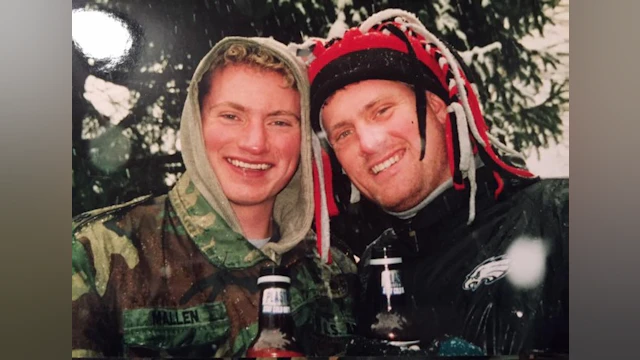Oct. 2, 2018 - My brother, Albie, was five years older than me, so I was forever chasing after him and his friends. I’d try to play whiffle ball with them, and he’d respond, “You can catch balls in the outfield. Next year you can bat.” The next year would come around, and he’d tell me the same thing! Regardless of how much older I got, he was always ahead of me.
I would never bridge that gap.
While my brother preferred being outside playing sports, some of his friends were into hobbies like Dungeons & Dragons, which I desperately wanted to play. I bothered my brother enough for him to finally tell his friends, “Just let him play.”
In the first game of D&D I ever played – this was in the late 1980’s – I created a character and explored a cave with Albie’s friends. Mere minutes into the adventure, a creature attacked us. In the ensuing battle, my character died. It seemed clear to me that my brother’s friends didn’t want me playing, and had found a quick way to get me out of their game.
I remained grateful to my brother for getting me into the action, though, allowing me to get my first taste of a hobby I’ve had affection for ever since that first adventure. My brother didn’t have to go to bat for me with his friends. But he did, and they let me play – albeit briefly.
In June 2017, my brother took his life at the age of 45.
Others in his orbit wondered why and how he could do it. For most of the time he was on this earth, he was larger than life – the loudest and biggest personality in the room. He was a celebrated high school athlete and later a dedicated firefighter. He was loved by many, though perhaps never by himself.
The symptoms of his depression had been clear to me and a few others, but even the people closest to him had only a limited view of his suffering. His coworkers didn’t know he was withdrawing from his family, and his family didn’t know he had been sent home from his job one day because he was sullen and “not himself.”
In the years and months leading up to Albie’s suicide, I had seen his depression increase in severity. I had listened and talked to him often – about his failing marriage and eventual divorce, his schedule working two jobs, recent budget cuts leading to a reduced salary and benefits as a firefighter, the struggles of staying connected with his two sons, his habit of using alcohol to cope with negative emotions, and unexplained physical symptoms.
He was overwhelmed.
I had encouraged him to seek treatment, and asked him directly whether he was thinking about suicide. I told him I was there for him. I tried to lighten the mood with humor. I shared my emotions while shedding tears with him. I asked his friends to check in on him; I told them I was worried. I know my brother’s suicide is not my fault, yet I also have regrets that I did not do more to let him know that I wanted and needed him to be alive.
Yet I still feel that had I known one or two more things about his behavior leading up to his suicide, which I learned in the weeks following, I probably would have done something different.
Would it have even mattered?
This is one of the questions I’ll have for the rest of my life.
Since Albie’s death, I’ve been filled with guilt, sadness, and anger. The intensity of those emotions varies each day. Overall, there is a profound emptiness in my world that I worry will never be filled now that my brother is gone.
There is a part of my brain that nurtures the thought that I failed him. Sometimes that part is damn loud. I’m not looking to silence that part of my brain. There are louder parts of my brain that understand I tried to reach out to him.
At the same time, I feel like we all failed him – friends, family, colleagues, community, society. His suicide is a microcosm of larger factors and forces in the world that remain a problem.
Any suicide leaves a wake of sorrow and anguish behind. There is the grief for the death of the person you love, and questions related to how things could have gone differently linger.
There are never enough answers.
I have an intense desire to do something about what is currently the tenth leading cause of death in the country. Over the past year, I have partnered with Limitless Adventures to channel my grief into something positive by writing content for Dungeons & Dragons, the game my brother introduced me to decades ago. The original characters I’ve created are collected in a book, “No Assembly Required,” which is now available for purchase. All money collected from sales will be donated to the American Foundation for Suicide Prevention. We priced the book to cost $5, and each sale of the book will result in $5 getting donated to AFSP.
So far, we have raised over $1,000.
This has truly been a labor of love – as well as other strong emotions.
You can track our progress through my personal AFSP campaign page.
It is my hope that we can help others like my brother to keep adventuring instead of choosing to not play the game.
